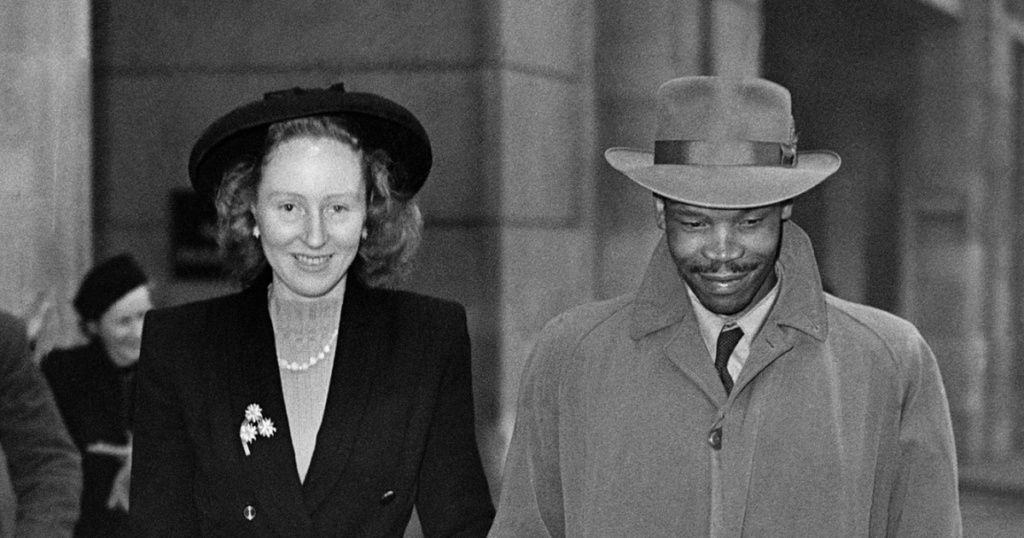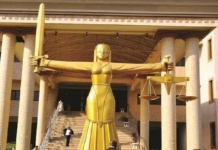
Botswana’s first president charted a principled path that many African leaders still fail to follow.
By Olakunle Agboola – When Botswana gained independence in 1966, few expected it to thrive. The country had no paved roads, no university, and an economy rooted in subsistence farming and cattle. With little more than sun, sand, and hope, Botswana had been a British afterthought—the “Bechuanaland Protectorate.” Yet from this overlooked corner of Southern Africa emerged one of the continent’s most visionary leaders: Sir Seretse Khama.
He wasn’t a man of fiery speeches or dramatic posturing. He was calm, deliberate, and principled—and that made all the difference.
Long before Botswana’s independence, Seretse had already revealed the strength of his character. His marriage to Ruth Williams, a white Englishwoman, at a time when interracial unions were political dynamite, cost him his kingship, triggered international backlash, and led to his exile. Under pressure from apartheid South Africa, the British government tried to force him to abandon her. He refused. Love, like integrity, was non-negotiable.
That stand—deeply personal, yet defiantly moral—was a sign of the man he was not for sale. When he returned to lead Botswana into independence, he brought that same unwavering principle into public office.
The British attempted to sow division among his people by manipulating tribal elders. Seretse responded with wisdom and restraint. He chose unity over vengeance and nation-building over political score-settling. He could’ve stayed in London or accepted exile in Jamaica. Instead, he returned. His loyalty was to his people, not personal comfort. He governed not out of bitterness, but out of vision.
And he built that vision with quiet strength.
While many post-colonial African states collapsed into tribalism, corruption, and economic chaos, Botswana under Khama quietly forged a different path. It wasn’t magic—it was clear priorities, hard decisions, and long-term thinking. He didn’t seek glory; he sought a future.
Rather than squander Botswana’s diamond wealth on vanity projects or personal luxury, Khama invested in roads, schools, and hospitals. He saw public funds as a trust, not a treasure chest. “We must avoid the temptation to live beyond our means or to seek instant gratification at the expense of the future,” he once said.
Under his leadership, Botswana maintained a steady GDP growth of around 9% for several years post-independence. The country now ranks among Africa’s least corrupt nations, according to Transparency International, and has consistently scored high on the Mo Ibrahim Index for African Governance. It was Khama’s stewardship that made these numbers possible.
While others printed their faces on currency and stashed fortunes abroad, Khama budgeted, planned, and empowered his people.
He refused to manipulate ethnic loyalties or rig elections. He didn’t cling to power; rather, he built strong institutions designed to outlive him. Where others used tribalism to divide, he used his heritage as a chief to unify. He spoke softly and governed wisely, laying the foundation of a democratic state, not a cult of personality.
Botswana remains one of Africa’s most stable and least corrupt nations. Notably, it is one of the few African countries that has never taken a loan from the International Monetary Fund (IMF)—a testament to its sound fiscal management and independence. Much of that success traces back to one man who chose ethics over ego.
Khama’s presidency wasn’t perfect. Like all administrations, he faced challenges, including overdependence on diamond exports and regional income disparities. But he never allowed short-term popularity to eclipse long-term planning. His commitment to accountability and fairness remains rare among political elites, then and now.
What’s striking isn’t just how much Khama achieved—it’s how few politicians have followed his example. His legacy is not widely taught, and his leadership style is rarely practiced. Too often, politicians backed by foreign interests rewrite constitutions to stay in power, siphon public funds, and fuel division. This destructive cycle continues to plague many African nations.
Khama’s story stands as a quiet rebuke. He proved Africa didn’t lack capable leaders—only committed ones. His life shows that an African leader can be just, visionary, and people-centred, and still succeed.
He didn’t promise freedom while deepening poverty. He didn’t build monuments to himself. He treated power as a responsibility, not a reward—as a leader should.
Perhaps that’s why Seretse Khama isn’t lionized like others. He didn’t fit the myth. He didn’t go out in flames or exile. He simply governed—and left with his integrity intact.
His wife, Ruth Williams Khama, stood not just as a partner but as a symbol. A white woman who became Botswana’s First Lady, she faced racism and isolation but ultimately won over a nation through grace and resilience. Together, they exemplified a politics rooted in compassion and cooperation.
And that’s where the contrast stings.
Today, many African leaders cozy up to foreign interests while their people languish. They mortgage national wealth for private gain. The Congo offers a glaring example—rich in resources yet mired in poverty.
Seretse Khama charted a better course. He managed Botswana’s diamond wealth not to enrich the few, but to build infrastructure and expand opportunity. The system wasn’t flawless, but it was focused. And the results speak for themselves: functioning institutions, real economic growth, and a citizenry that saw tangible progress.
The message is simple, yet profound: Africa doesn’t need more strongmen. It needs more Seretse Khamas—leaders who value legacy over luxury, service over self-interest.
Because the true cost of corruption isn’t just money lost. It’s futures stolen. And Khama, in his quiet dignity, refused to steal even that.
He governed. He built. He loved. And he left Botswana stronger than he found it.
That is leadership. That is legacy.
That is what African citizens must begin to demand again—with their votes, their voices, and their vigilance.










